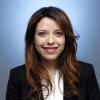California bill would make testifying in court easier for young victims of human trafficking

“Dear Judge, I am writing to tell you my story,” said a teenage girl on the witness stand in a Los Angeles courtroom in March, her soft voice barely audible as she read a letter she typed.
She described how Dora Alicia Valle smuggled her into California from El Salvador, forcing her to work in a Pacoima restaurant for meager pay. She took orders and washed dishes, she said. She cleaned vegetables and mopped floors.
On weekends, she worked morning to midnight, and hours into the night on school days.
“I still have bad dreams, and I get sad when I think too much,” the teen said, according to a court transcript. “I was very afraid of Alicia. When she got mad, she would hit me and make me feel bad.”
As California lawmakers aim to curb the illegal trade of sex and labor before adjourning the legislative session at the end of August, at least one bill seeks to protect such young, vulnerable victims at the center of human trafficking cases in court.
The legislation by Assemblyman Miguel Santiago (D-Los Angeles) would allow minors ages 15 or younger to testify through closed-circuit televisions outside the courtroom, where they can share their painful and often traumatic experiences away from the presence of the jury and the defendant.
Of some two dozen human trafficking bills still pending at the state Capitol, Santiago’s is the one that has garnered the most support from advocates and law enforcement. But it has one major opponent, the American Civil Liberties Union, which says the law would violate the constitutional right of defendants to confront their accusers.
“Whether it passes or not, it is just the first chapter,” said Los Angeles County Superior Court District Judge Catherine Pratt. “There will be a lot of discussion of whether this passes constitutional muster.”
Proponents of Assembly Bill 1276 say the cooperation of victims is often crucial to building cases against the profiteers of a human trafficking industry that generates billions of dollars and sweeps up hundreds of thousands of minors nationwide every year.

But the experience can be excruciating for young survivors of trauma.
Prosecutors said some children ditch school or flee their foster homes to avoid facing their accusers. In courtrooms in Los and Angeles and San Diego, where gangs have dipped into the trade, members of criminal organizations have filled the benches to harass and intimidate witnesses.
Some minors living in stable conditions have fallen into depression after taking the witness stand. Others have attempted suicide.
For survivors of sexual exploitation, the cases can be more difficult. Victims tend to be children and teens, prosecutors and social workers said, many of them girls from broken homes who mistrust authority. As in cases of rape, there can be humiliation and shame to testifying, said Pratt, whose Compton court specializes in prostitution and human trafficking cases.
“But on top of it, these girls don’t identify themselves as victims of rape,” she said. “Because of the trauma they’ve suffered, they think they have been doing this voluntarily. They are very defiant or angry.”
California law already allows minors younger than 14 years old to testify through closed-circuit televisions in sexual assault and violent cases where certain conditions are met. The method also can be used in the civil courts for some child abuse cases.
Santiago’s original version of the bill sought to apply the practice to all human trafficking cases with witnesses younger than 18. But he said he lowered the age limit after opponents raised concerns that the provisions eroded a defendant’s right in far too many cases. He then modified the conditions under which a judge can order the method be used, after advocates said it would not apply to enough cases.
He said he believes his proposal is constitutional, as a judge would be able to employ the practice only in unique circumstances during a trial or in hearings beforehand.
“You are talking about children who have gone through some horrific actions, and now they have to go to a room and confront their trafficker,” Santiago said.
But the ACLU contends the proposal strays too far from the legal exemptions to a U.S. Supreme Court ruling that holds that a defendant has a right to a physical, face-to-face confrontation with an accuser.
There have been legal findings that say allowing children to testify through a closed-circuit television works in child abuse cases. But in those instances, adults lose their parental privileges and are given the chance to go to parenting classes.
In human trafficking cases, the stakes are higher, with the defendant facing a potential punishment of years in prison.
Natasha Minsker, director of the ACLU of California Center for Advocacy and Policy, said in a statement that courts have recognized only a narrow exception to the confrontation clause in the cases of child abuse victims.
“Cases upholding the use of closed-circuit television usually involve very young children, under the age of 12,” she said. “AB 1276 goes far beyond what courts have previously recognized as valid and raises serious constitutional concerns.”
Dora Alicia Valle, 52, of Sylmar, was sentenced to five years in prison after she pleaded no contest to human trafficking and slavery last July during the jury selection of her trial. Court records say she paid coyotes to smuggle the girl from El Salvador when she was only 8. Valle forced the child to work up to 16 hours a day and garnished her wages, threatening to hit her with a belt or a pistol, according to the filings.
At her sentencing in March, Valle’s friends said she was only trying to provide for the young girl she took into her home. But taking the witness stand against Valle for the second time, a tough feat she almost could not bear to do, the young girl said Valle had taken her from the only loving family she knew.
After everything Valle put her through, she told a judge, she no longer played with dolls and was struggling in school. In closing, prosecutor Paul Kim said the defendant only brought the young girl “here to become her slave, her peasant, her servant.”
That the child was willing to speak out against Valle in court, once prior to her trial and another time during her sentencing, was significant, social workers and prosecutors said. Too often, they said, victims do not come forward at all.
ALSO:
State lawmakers’ competing ideas on how to stop human trafficking prevent steps forward, critics say
Crackdown on pimps fuels a rise in human trafficking charges in L.A. County
Updates on California politics
More to Read
Get the L.A. Times Politics newsletter
Deeply reported insights into legislation, politics and policy from Sacramento, Washington and beyond. In your inbox three times per week.
You may occasionally receive promotional content from the Los Angeles Times.







